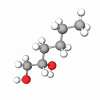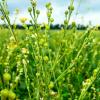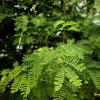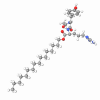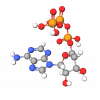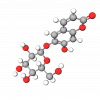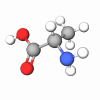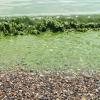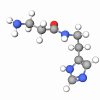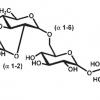Bisabolol substance comes from the chamomile flower, is antiphlogistic (anti-inflammatory), disinfects, and soothes. In addition, it helps reduce irritation and sensitivity associated with oily skin breakouts. It is a colorless to pale yellow clear and viscous liquid with a pleasant and sweet odor and a delicate floral note.
α-Bisabolol is monocyclic unsaturated sesquiterpene alcohol derived from natural, sustainable sources in the form of clear, colorless to pale yellow oil. It is an Ecocert-certified, safe, and clinically proven ingredient with noticeable anti-inflammatory activity against irritation, redness, and erythema.
Mechanism of action
Applied topically, Alpha-Bisabolol inhibits inflammation mediator molecules action such as Interleukin IL-1α and Leukotriene LB4, soothing skin irritation and exposing a healthy-looking, calm, and beautiful appearance.
Uses
It is a perfect natural ingredient for sensitive skin care applications, anti-aging and sun care preparations, and specialized products for winter skin care. Bisabolol is used in high-end organic formulations for skin, lip, and body care.Chamomile is known to the consumer as a multi-active medicinal plant in traditional medicine. Natural alpha-bisabolol, which is also described as (-)-alpha-bisabolol, is present in the essential oil of the chamomile flower in concentrations of about 50%. It is an optically active, monocyclic sesquiterpene-alcohol.
Natural alpha-bisabolol can be economically also obtained from other plants, e.g. from the candeia tree for it, native to the southeast area of Brazil. Other alpha-bisabolol isomers are found when alpha-bisabolol is produced synthetically.
Natural alpha-bisabolol is very well compatible with usual cosmetic raw materials and in the end products very stable during storage. No color change is observed and alpha-bisabolol is not diffusing through the usual packaging materials such as polyethylene, polypropylene, and polyester. Alpha-Bisabolols are stable in cosmetic formulations in the pH range of 3 to 11.
Synthetic alpha-Bisabolol, also described as (+/-)-alpha-Bisabolol is a racemic mixture and possesses according to Marti only about 50% of the effectivity of the naturally occurring component. Bisabolol is applied in cosmetics for its soothing, anti-irritating, wound-healing, antibacterial, and deodorizing properties.Anti-inflammation
Multiple animal experiments showed that natural alpha-bisabolol reduces inflammations. In different models to measure inflammatory reactions, such as erythema suppression after UV light exposure or reduction of edema development natural Bisabolol was shown to work. In one study the back-skin of volunteers was treated with 0.1 to 1% Bisabolol solutions in ethanol. Pure ethanol was applied as a control.
Afterward, the skin was exposed to different doses of UV light. All concentrations of Bisabolol were effective as they increased the UV light dose necessary to produce erythema. 0.1 to 0.5% natural Bisabolol is effective in preventing UV light erythema. Furthermore, erythemas were treated with 0.1 to 1% Bisabolol solutions and the disappearance of the erythema was measured compared to a control treatment. Natural Bisabolol speeded up the erythema disappearance by 20%.
Promotes wound healing
Chamomile extracts have been known for a long time for their wound-healing properties; however, experiments with isolated Bisabolol are scarce. In one experiment with guinea pigs skin was injured with hot olive oil. The healing time of the burn lesions was significantly reduced by alpha-bisabolol by nearly 25%.Antibacterial activity
Alpha-Bisabolol is a sesquiterpene alcohol with a tertiary alcohol group. Bisabolol has microbiostatic properties, especially against gram-positive bacteria (Staphaureus, staph. epidermidis, corynebacteria, etc.) and fungi (trichophyton species, Candida albicans) where it shows similar effectiveness compared to comparable primary and secondary structures.
Deodorizing activity
The deodorizing effect of alpha Bisabolol is largely determined by its antibacterial activity. The bacteria species Staphylococcus epidermidis and corynebacteria play a major role in the breakdown of human sweat, which leads to the generation of strongly smelling substances.
Many studies show that alpha-bisabolol applied topically in concentrations of 0.1 to 0.5% reduces inflammation, which promotes the healing of wounds. By its antibacterial activity, alpha-bisabolol contributes to deodorizing. Thus, it is an ideal cosmetic active ingredient for formulation that cares for and protects physically, chemically, or biologically challenged skin. Examples are its application in after-shave products, sun care, after sun, baby care, lip-protectors, toothpaste, and all formulations for sensitive skin. Other components of a formulation may exert an additive, synergistic, or inhibiting effect.
